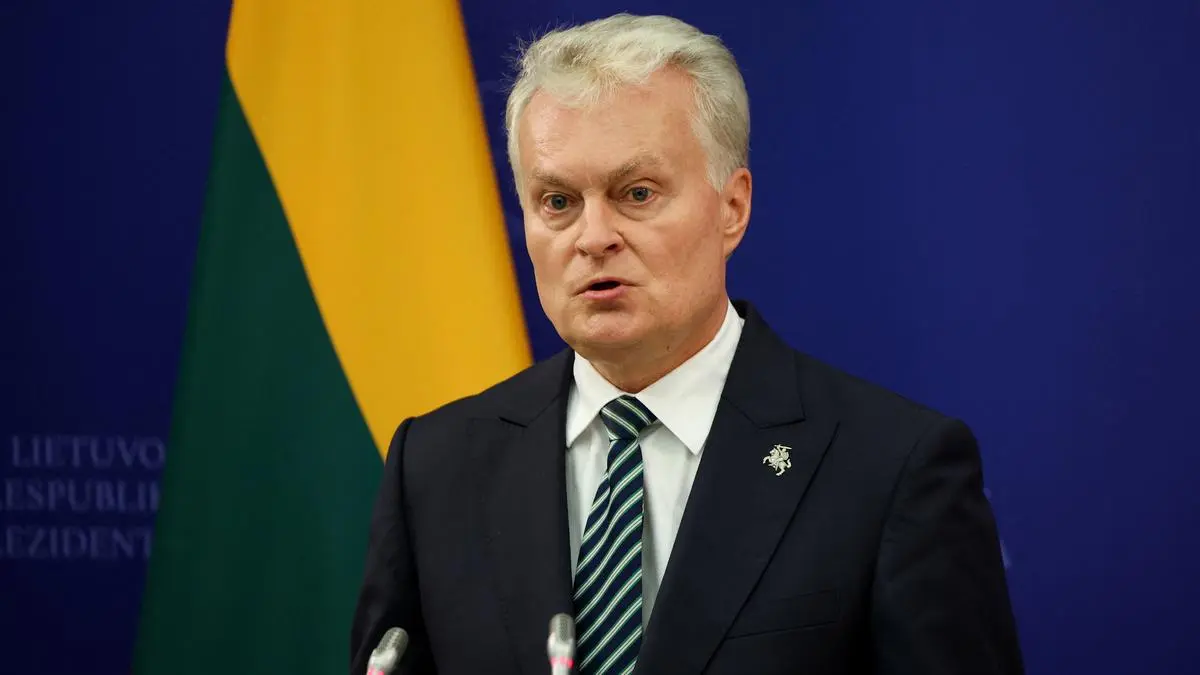
Lithuanian President Gitanas Nauseda said Russia was testing NATO’s readiness to retaliate with its series of incursions along the eastern flank of the alliance.
Three armed Russian fighter jets entered Estonian airspace for 12 minutes last week, in what the government in Tallinn called part of Moscow’s broader campaign to test how firmly NATO is prepared to respond to territorial threats. That followed two other incursions earlier this month, into Poland and Romania.
“Russia is testing us, testing our preparedness, testing our commitment to retaliate,” Nauseda said at a Baltic American Chamber of Commerce event in New York on Monday. “It’s very important to show solidarity.”
The latest incident triggered NATO consultations, just a week after the alliance decided to reinforce its eastern flank by deploying additional air defenses and military jets.
The United Nations Security Council discussed the breach in Estonia at an emergency meeting in New York on Monday.
Estonia’s Foreign Minister Margus Tsahkna said after the gathering that Russian President Vladimir Putin was trying to test NATO’s unity and capabilities, but he was failing.
“Putin is playing with fire and next time if we see immediate threat to our territory or to us it can be different,” he told Bloomberg Television in an interview.
Polish Prime Minister Donald Tusk said on Monday his country is prepared to shoot down foreign aircraft that cross into its territory without authorization. NATO downed Russian drones that crossed into Poland earlier this month in the first such move since the start of Moscow’s full-scale invasion of Ukraine in 2022.
Nauseda described the incursion into Estonia as the “brutal violation of airspace of a sovereign country.” He said the three Baltic nations, which are most exposed because of their proximity to Russia and its client state Belarus, have limited air defense capabilities to respond to airspace violations.
The Lithuanian president said the incidents mean the members of the North Atlantic Treaty Organization should “take all the necessary measures in order to protect the external border.”
Earlier this month, Lithuania temporarily closed sections of its airspace along the border with Belarus, which allows the military to target aircraft violating the no-fly zone or stray drones. The reaction from Lithuania is a sign of the increased concern over the threat posed by Russian drones accidentally entering the alliance’s territory.
“This is about our awareness,” Nauseda said. “If we don’t react now there will be more attacks tomorrow.”
More stories like this are available on bloomberg.com
Published on September 23, 2025